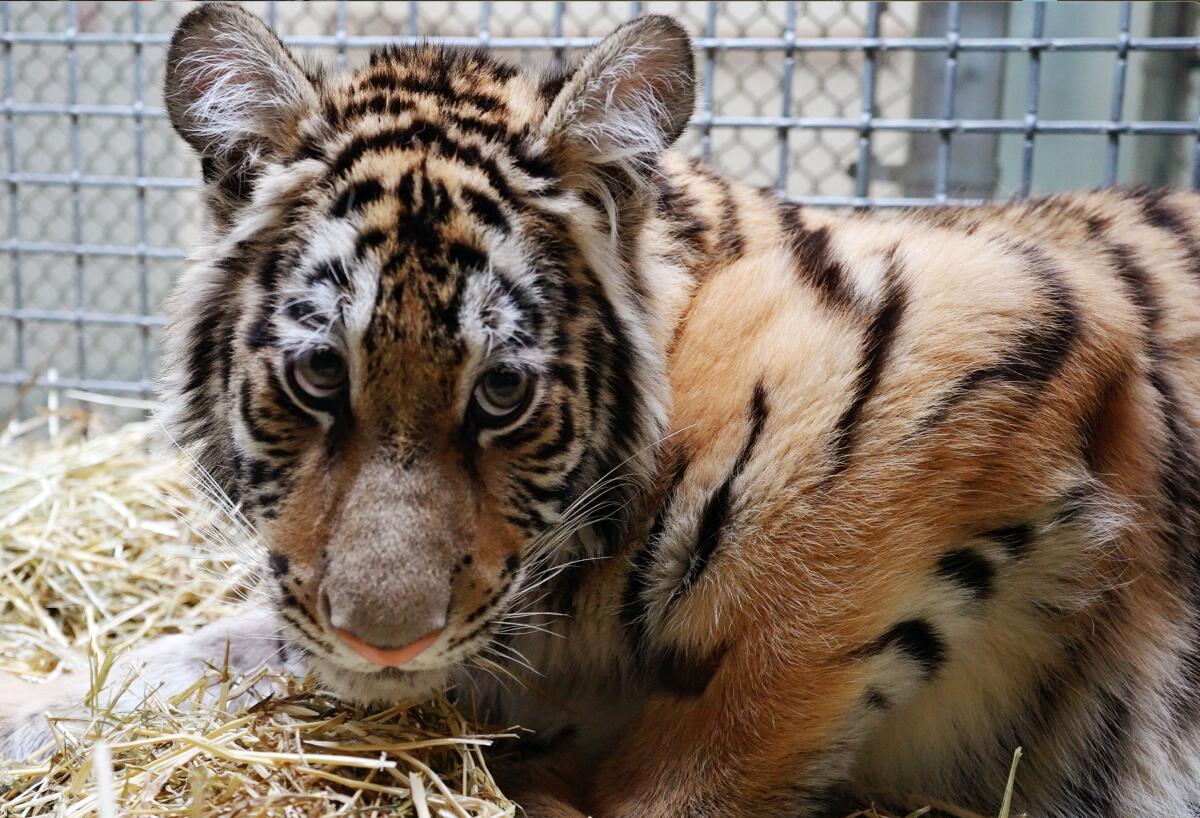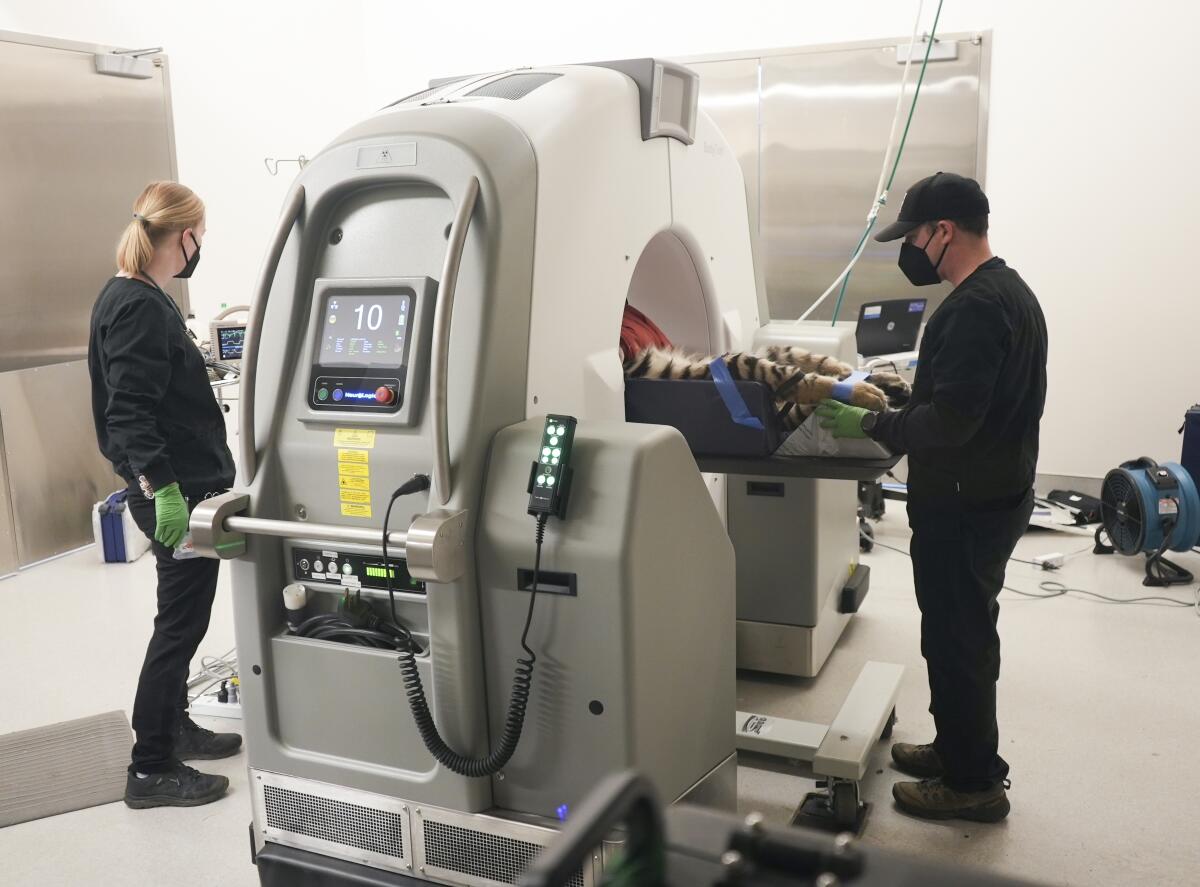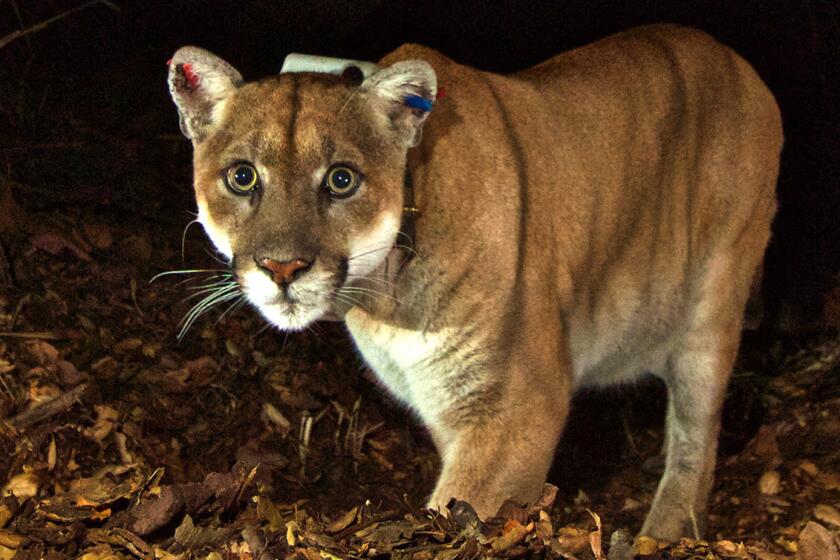Malnourished tiger cub with fractured bones rescued from private facility, now in rehab

- Share via
Oakland Zoo officials have rescued an 8-month-old tiger cub from a private facility where the cat was found with at least 10 bone fractures, caused by a poor diet.
The zoo, which worked with the California Department of Fish and Wildlife to rescue the cub Tuesday afternoon from somewhere in the Western U.S., has begun what officials expect will be a long rehabilitation for the young tiger.
Initial evaluations of the animal found she had 10 pathological fractures, or breaks caused by weak bones, which veterinarians said occurred because of the decalcification of her bones.
“Inadequate amounts of calcium and phosphorus in her diet caused her body to source the calcium from her bones, which resulted in the weakening of the bones and subsequent fracturing during normal young tiger activities, such as play behavior,” according to a statement from the Oakland Zoo.
The zoo said it could not provide specifics on the tiger’s previous home “due to ongoing legalities with her case.”
In 2022, Congress passed the Big Cat Public Safety Act, which bans private ownership of big cats as pets, including tigers, as depicted most infamously in the Netflix series “Tiger King.”

“Big cats don’t receive appropriate care for their well-being in unaccredited facilities,” the zoo’s statement said, noting its support of the legislation. “Oakland Zoo is equipped to execute the rehabilitation this rescued female tiger needs to begin her long journey to recovery.”
The female cub was diagnosed with a metabolic bone disease, which led to 50% muscle atrophy, officials said. Many of her fractured bones are also healing improperly, resulting in abnormal angles in her limbs. The medical issues have prevented the tiger from performing natural movements such as running and climbing.
Letters to the Editor: Banned rodenticides are still for sale online. Can mountain lions survive?
California banned the private use of diphacinone in part to save mountain lions, but you can still buy the rodenticide online. Who’s enforcing the law here?
“I’ve treated over 100 cases of rescued big cats, and unfortunately, these injuries can lead to lifelong medical issues,” said Ryan Sadler, senior veterinarian at Oakland Zoo.
But the team is working to provide the tiger the best care and is “cautiously optimistic” she will make a full recovery, though she will probably develop arthritis later in life, the statement said. The zoo staff has provided her with nutrients to help build back her calcium and a physical therapy plan to rehabilitate her muscles, the zoo said. She was also given pain medication.
“Seeing this young tiger enduring such obvious suffering is extremely difficult,” Nik Dehejia, chief executive of Oakland Zoo, said in a statement. “No animal should experience life in this way. We are grateful to serve in a role that gives her hope for brighter days ahead.”
More to Read
Sign up for Essential California
The most important California stories and recommendations in your inbox every morning.
You may occasionally receive promotional content from the Los Angeles Times.














